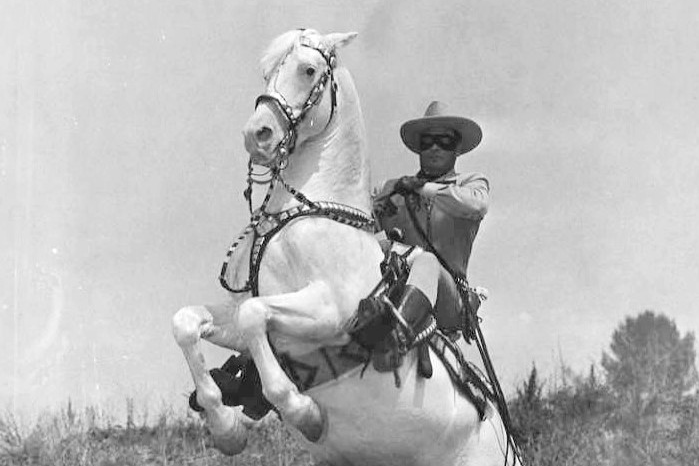“Whoa!” can be used to express surprise, to grab attention, or to get a horse to stop or slow down.
When a handful of American Christian cowboys recently flew into Israel, the banjo was not strumming “Old Susanna,” but was likely plucking something more akin to “This Land is Your Land, and This Land is My Land.”
The novelty of Christian cowboys to the rescue, under the sponsorship of the faith-based volunteer organization HaYovel, went viral, thanks to current Israeli desperation for acceptance from just about anyone, combined with the concerted efforts of a handful of vocal observant Jews – many of whom run projects that rely heavily on Christian financial support.
Presenting as humble, sincere, and willing to serve, rather than proselytize, the cowboys won the hearts of many who are grateful for all the friends they can get, especially at this time.
It’s a given going back to pre-state times, that whenever the nation of Israel faces an extraordinary challenge, missionary organizations come out of the woodwork with support and services with the goal of sharing “the good news of Jesus” with the most vulnerable sectors of society.
The absence of aggressive “smoking-gun” proselytizing does not disqualify faith-based individuals and organizations from being active and effective missionaries. On the contrary. Those “Christian Zionist” groups involved in bridge-building and the type of interfaith activities that aspire to break down the theological boundaries between us and Christianity are having a heyday in Israel and enjoy the full endorsement and encouragement of some Torah observant Jews from the national camp.
Others, however, remain skeptical – particularly those who were once adherents of the Hebraic Roots and Evangelical Messianic movements, but who have since joined the Jewish people.
Author Emunah Murray is one such person who feels, “having formerly been deeply involved with an organization that directly partners with HaYovel, I earnestly wish the Jewish community would turn to converts like myself who have ‘been there, done that,’ and understand fully the mindset of these groups. This is a safer alternative than turning to Jewish activists and groups who are benefitting from HaYovel because they have a stake in it.”
Inspired by end-days prophecy, HaYovel – headed by Tommy Waller – concentrates on serving the agricultural enterprise in Judea and Samaria. From HaYovel’s inception, Waller has been consistently focused on efforts to chip away at the theological wall between Christians and Jews.
HaYovel recruits from and partners with Christ-centered messianic and Hebraic Roots groups – many of whom consider themselves part of the lost tribe of Ephraim and therefore inheritors of the land of Israel.
Several years ago, the late Rabbi Dr. Sholom Gold repeatedly challenged Rabbi Eliezer Melamed’s endorsement of HaYovel, which has established a base in the community of Har Brakha. Rabbi Gold wrote:
“Christian messianic sects whose adherents are here to ‘love’ and ‘serve’ Israel… is precisely the classic definition of a ‘missionary’!”
He went on to say, “It is crucial at this time that such rabbis stop hosting and promoting those messianic-driven Christian ministries and individuals who are determined to destroy the theological boundaries between Judaism and Christianity. The rabbis involved are accomplishing nothing less than contributing to, inspiring, and establishing a first century type Christian Restoration cult in Eretz Yisrael.”
“For a Jew, any Jew, to encourage devout Christians to explore the so-called Hebraic roots of Christianity or to advance any movement associating Christians with the lost 10 tribes is nothing short of playing with fire. It shouldn’t be done in the name of interfaith reconciliation, as an attempt to second-guess biblical prophecy, or as a means to encourage tourism, commerce and/or settlement in Eretz Yisrael.”
Concern over HaYovel’s activities over the years has resulted in the formulation of several halakhic positions including, “A Document of Principles Regarding Acceptance of Monetary and Manpower Assistance from Christian Organizations or Individuals,” published in June 2014 by the Committee of Binyamin Region Rabbis.
Recently, leaders of the StoneWater Church in Granbury Texas, took a photo with the cowboys in Israel and announced that their church stands proudly with the “famous Cowboys.”
StoneWater now promotes partnership volunteering opportunities with HaYovel in the following manner: “Go take a hill for Jesus. Go spread the Gospel among the nations.”
Today the heartfelt words Waller delivers at interfaith events and Synagogues are very different than the Christ-centered message he preaches to church congregations that focus on HaYovel’s coming to Israel “to witness who God is, who Yeshua (Jesus) is… to bring good news to the Jewish people.”
Eight months ago, Waller spoke at a missionary church and related how he encouraged his Torah observant Jewish friends to study the New Testament.
“I know this book is Jewish. You guys have to help me with some of this stuff.”
Waller recounted that after they studied the passage on the resurrection, the Jews concluded, “Oh wow, man, he [Jesus] is a good Jew.”
Waller was not speaking to just any congregation.
The church is a part of the international missions organization of the International House of Prayer Kansas City (IHOPKC). Its leader, the recently discredited Mike Bickle, was a main player behind 2033.earth, the cross-denominational decade-long missionary global evangelism crusade that was launched from the Southern Steps of the Temple Mount last May.
The argument today that we need all the friends we can get, and that includes evangelicals on a Jesus-centered mission, may or may not be valid. What is unacceptable is the lack of transparency on the part of Jews who stridently defend groups like HaYovel.
There needs to be a moment of truth where those collaborating with evangelical entities say, “Yes, it’s a double-edged sword. These people are here in Israel on a theologically inspired Christian mission and may directly or indirectly empower messianic missionary influence in Israel. But due to the situation, we are choosing to work with them.”
That would give Israelis a fair opportunity to vet, introspect, “respect and suspect” or reject and protest that assistance.
In the US, there’s a natural recoil against those who cross faith-based lines, and it could be felt at the March for Israel a few weeks back in Washington DC.
Controversial Pastor John Hagee was invited to the podium and delivered the following message: “If a line has to be drawn, then draw that line around both Christians and Jews.”
Hagee went on to try to prompt the chant, “We Are One!”
The crowd’s initial reaction seemed to be one of bewilderment. By the fourth chant, those gathered caught on and offered a lukewarm response. The reply to the pastor seemed to be, “Thank you, but we are not one.”
Political, economic, and security concerns aside, “Am Yisrael Ḥai” is a statement that the Jewish people, as a nation, will live with our unique obligations to serve the Creator, uphold our Torah, and ensure the integrity of the land of Israel and its people.
We are committed to safeguarding the Jewish people and our spiritual values for the generations to come.
Any non-Jews who join in for the ride and take a moral stand with Israel need to reckon that directly or indirectly influencing us towards acknowledging their man-god cannot be a part of that equation.
This is where we Jews stand as Lone Rangers.






A well written, important, and timely piece. Several articles have been written lately defending the Christian cowboys and evangelicals in general which portray them as our friends and devoid of a missionizing agenda. It’s refreshing to see another, equally valid, perspective which gives Israelis an opportunity to understand methods used by missionaries other than beating us over the head with the Bible.
Fabulous expose . Thank you ! Emunah Murray